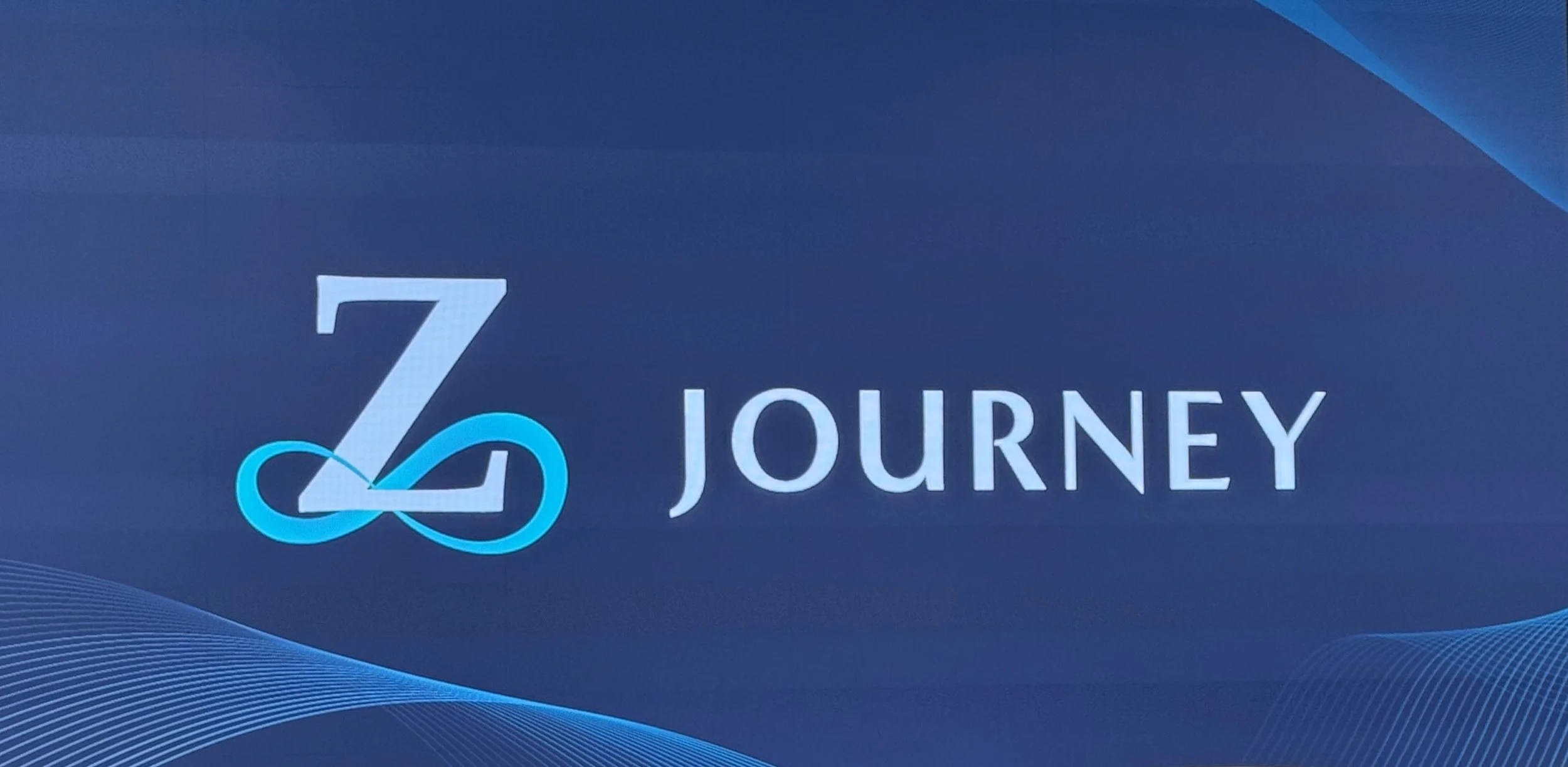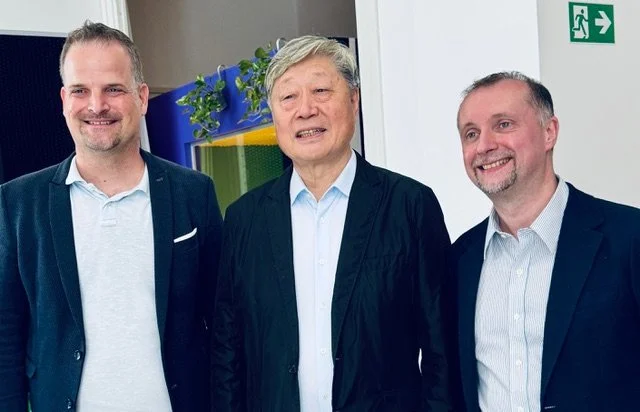Haier ZeroDX Journey 2025 - Case Studies, Insights and Learnings (Post 1 - Haier’s Founder Zhang Ruimin about why is Haier so successful?!)
Image source: HMI
Mirko Kleiner & Paolo Sammicheli – At the LAP Alliance, our mission is to connect movements like Agile Leadership, Scaling Agile, Lean-Agile Procurement, and more to advance Business Agility.
A standout example is Haier, a global pioneer that transformed from a traditional manufacturer into a network of 4,800 Micro Enterprises (MEs), each operating autonomously and co-creating value within Ecosystem Micro Communities(EMCs). This large-scale, win-win model is unlike anything else in the world.
The LAP Alliance has been collaborating with the Haier Model Institute to promote Haier’s New Economic Engine - RenDanHeYi: a management approach with no bureaucracy and consistent 20% growth.
In this blog series, we’ll share key takeaways from the Haier Zero Distance Excellence Journey 2025, and explore how AI and ecosystems are shaping the future of business.
Post 2 - Haier’s Founder Zhang Ruimin about why is Haier so successful?!
In 2024, 70 global enterprises undergoing Zero Distance transformation actively participated in the ZeroDX Awards, generating significant international resonance. To further amplify the “Zero Distance” philosophy and engage more organizations worldwide in adopting, practicing, and evolving this concept, the Business Ecosystem Alliance (BEA) and the Global RenDanHeYi Research Centers are jointly launching the “ZeroDX Journey”.
This initiative offers participating enterprises from this year’s evaluation cycle exclusive opportunities for site visits and exchanges with Zero Distance benchmark companies, alongside collaborative development of the ZeroDX Announcement with the Zero Distance Community. The outcomes are scheduled for release at The 9th RenDanHeYi Model Leading Forum and the 2nd ZeroDX Awards in Bejing, China on Sep 19th, 2025.
In this blog post we’ll learn from Haier’s founder, Owner and Chairman Emeritus Zhang Ruimin why the Haier Group is so successful?!
Keynote by Zhang Ruimin
On all days Zhang Ruimin gave a quick introduction in Haiers Management Model RenDanHeYi so that newbys could better understand the context of the visited companies.
In this blog post we’d like to publish one of the keynotes, that we’ve recorded and transcribed.
Please bare with us and our lack of Chineese if any of the translations was wrongly interpreted.
Image source: Mirko Kleiner, contents: HMI
Start of transcription:
Maximizing the value of each individual over shareholder value
Many foreign journalists, both domestic and international, have asked me, "You're so successful, but isn't your company in chaos? Haier has 130,000 employees, and everything is in disarray." Actually, no. A major issue here is the unity and consistency of the decentralized department. Without centralization and unification, Haier has eliminated all 12,000 management personnel and all the intelligence. Many of the original departments are gone, and all of them have to be managed through entrepreneurial departments, small, entrepreneurial units.
All you need to do is listen to your users, support them based on their needs, and innovate.
— Zhang Ruimin
But why can it still be unified? The simple reason is that the core of all small departments is the user. As long as you create value for users, you must have value. If you can't create value for users, you have no value, and you may need to dissolve. We generally stipulate that if you haven't created value in six months, you will be dissolved. You can be mentally prepared, but it will eventually become an ecosystem, not just for you, but for the entire society. If someone has a past experience, like I have a mental illness, they can come to Haier departments. So many entrepreneurs in Haier departments now are not originally from Haier, but are social entrepreneurs. So, the reason I first said that if the reasoning is that the size of the company can be ignored, but the focus is on getting work done, then the old corporate structure must be torn down.
Traditional Management maximize human efficiency, but it also suppressed human creativity
— Max Weber
Honestly, our management system has remained unchanged for 200 years since the Industrial Revolution because it depends on three people: the three pioneers of classical management theory. The first is Taylor, who advocated scientific management and focused on efficiency. The second is Max Weber, the father of auxiliary theory, who developed science and diplomatic systems. The third is the French courts, who pioneered intelligent management. Think about this: after Max Weber created Comrade Cole, he said that it could maximize human efficiency, but it also suppressed human creativity.
Today, in the internet age, we can eliminate this and raise everyone's spirit. So, once people are de-worked, the entire enterprise should become an ecosystem, and people should become a major contributor to everyone's value, not just a general contributor to value. At the same time, everyone should be able to create their own value and realize their own dignity.
Now, for example, in the United States, we have restored the American GE Appliances (GEA). So, in just four or five years, the American GEA has tripled its profits compared to when we restored it. Why? We didn't send any management personnel; the original people were in charge. Because we restored so many small and micro businesses, everyone's value has been fully realized. Americans are often liberal and individualistic, but what will happen if you look at each opportunity one by one?
Of course, we restored Sanyo in Japan. Japan is controlled by a system of federal enterprises and a lifetime employment system, but it allowed everyone's value to be fully realized, and they also became spies. So, I believe that as a company, if your mission is to maximize human value, everyone must first strive to support the will of the people. This is a universal value, universally accepted.
Of course, what I'm saying is that to achieve this, you should de-emphasize work. If current employees don't have jobs here, the company will inevitably collapse, and those who succeed them will simply admire them. That's my opinion. Of course, Mr. Matre and his team have done an exceptional job. I was deeply moved last night. They have six retirees, and they've managed to retire—that's quite remarkable. Of all the retirees and medical staff I've seen, they're the best and fastest, and this is largely due to Mr. Matre's approach. As I mentioned, Renmin University and the Medical College are both human-centered, while traditional management methods are material-centered. Therefore, this management approach isn't about focusing on specific steps or processes, but rather on maximizing the value of each individual. This is the first point I want to make.
Small rules must be self-evolving & self-changing
They've done an excellent job, and I'd like to reiterate what Renmin University and the Medical College have to say. Secondly, Mr. Matre just mentioned that they were discussing small rules. My understanding is that these small rules are self-organizing. As Mr. Matre just mentioned, he asks them to make a plan every September. Is that okay? Yes. But I think the key to small rules isn't that. Small rules must have two key points: first, they must be self-evolving, and second, they must be self-changing. What does that mean? It means that given such great power, small rules must constantly strive to learn, iterate, evolve, and improve within their field.
Just because you're good today doesn't mean you'll be perfect tomorrow
— Zhang Ruimin
Just because you're good today doesn't mean you'll be perfect tomorrow. The world is moving so fast these days, and it's very likely you won't be able to do well. So, in the second language, which small rule is good depends on your ability to self-evolve. That is, can you start with a small rule that's doing well, but then discover a new opportunity in this field and create another small rule based on that new opportunity? In this way, these small rules become a way to constantly discover new areas and directions, rather than just giving myself homework during the process of self-evolution. That's all my responsibility, and if it expands, I'll just have to go back to my old ways. So, I think these small rules are probably not self-organized, because all self-organizations are based on three concepts: co-creation, co-sharing, and co-governance. The first is co-creation, co-sharing, and co-governance: co-creating results, co-governing those results, and co-sharing those results. So, we generally stipulate that if a small rule generates greater value within a certain period of time, regardless of the field, it should be withdrawn. Anyway, I'll just discuss these two points.
Thank you. Thank you very much
Conclusions
We were already quite familiar with Haier's New Economic Engine and its foundation, the Haier Management Model (RenDanHeYi). However, listing to the source of RenDanHeYi and having the possibility to have a direkt conversation with one of the most forward thinker of our times is just increadible
Image source: Mirko Kleiner
Of course are we very proud of our #Selfie with Mr. Zhang. Or when have you met a Billionaire the last time?
Next Post - Haier’s founder about the new Management Model
Stay tuned for the upcoming posts in this series!
All Posts of this Series
Post 1 - The ZeroDX Journey 2025
Post 2 - Haier’s Founder Zhang Ruimin about why is Haier so successful?
Post 3 - The VAR Group Case Study
Post 4 - The Gummy Industries Case Study
Post 5 - The ASA Group Case Study (Staytuned - in progress)
Post 4 - The Haier ZeroDX Awards 2025 (Staytuned - later in Sep/Oct)
Post 5 - Our Haier ZeroDX Awards 2025 Ecosystem Case Studies (Staytuned - later in Sep/Oct)



